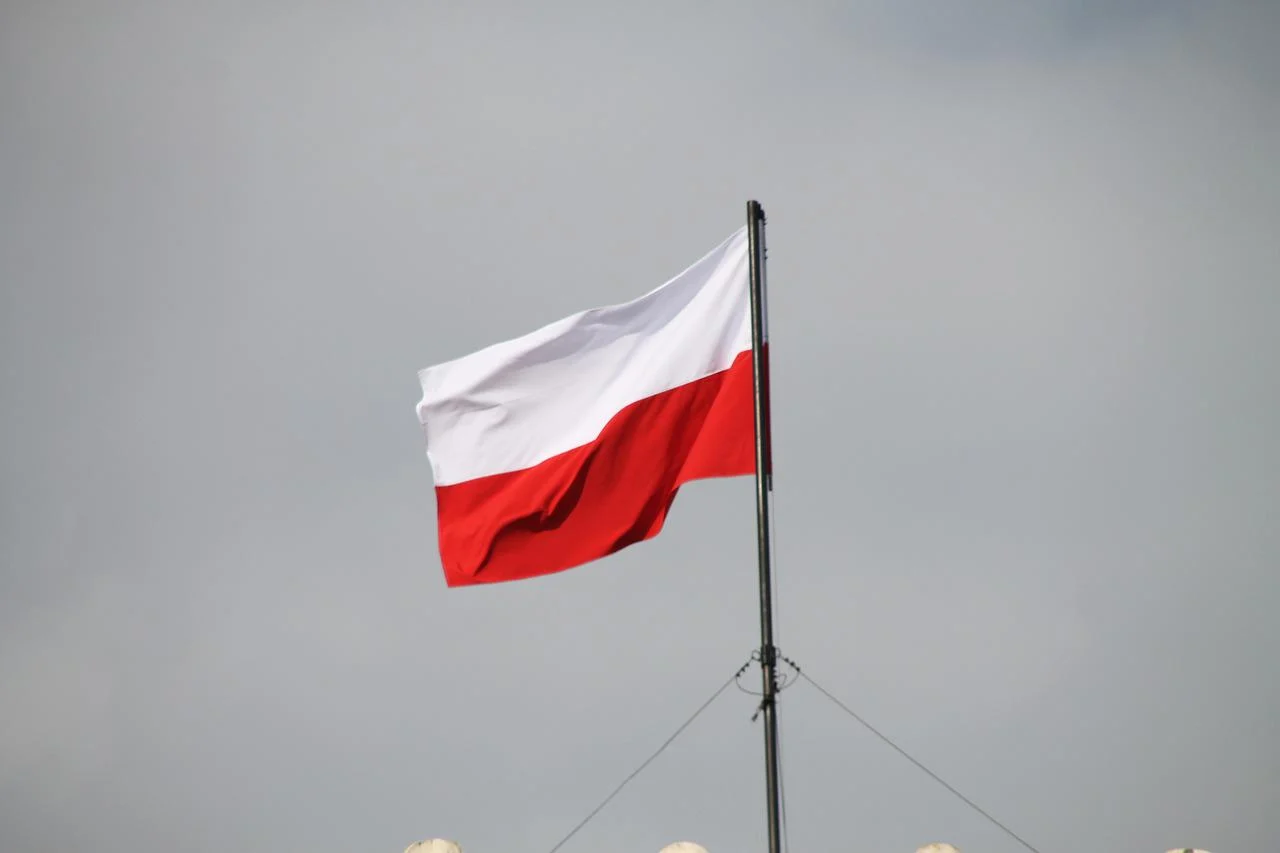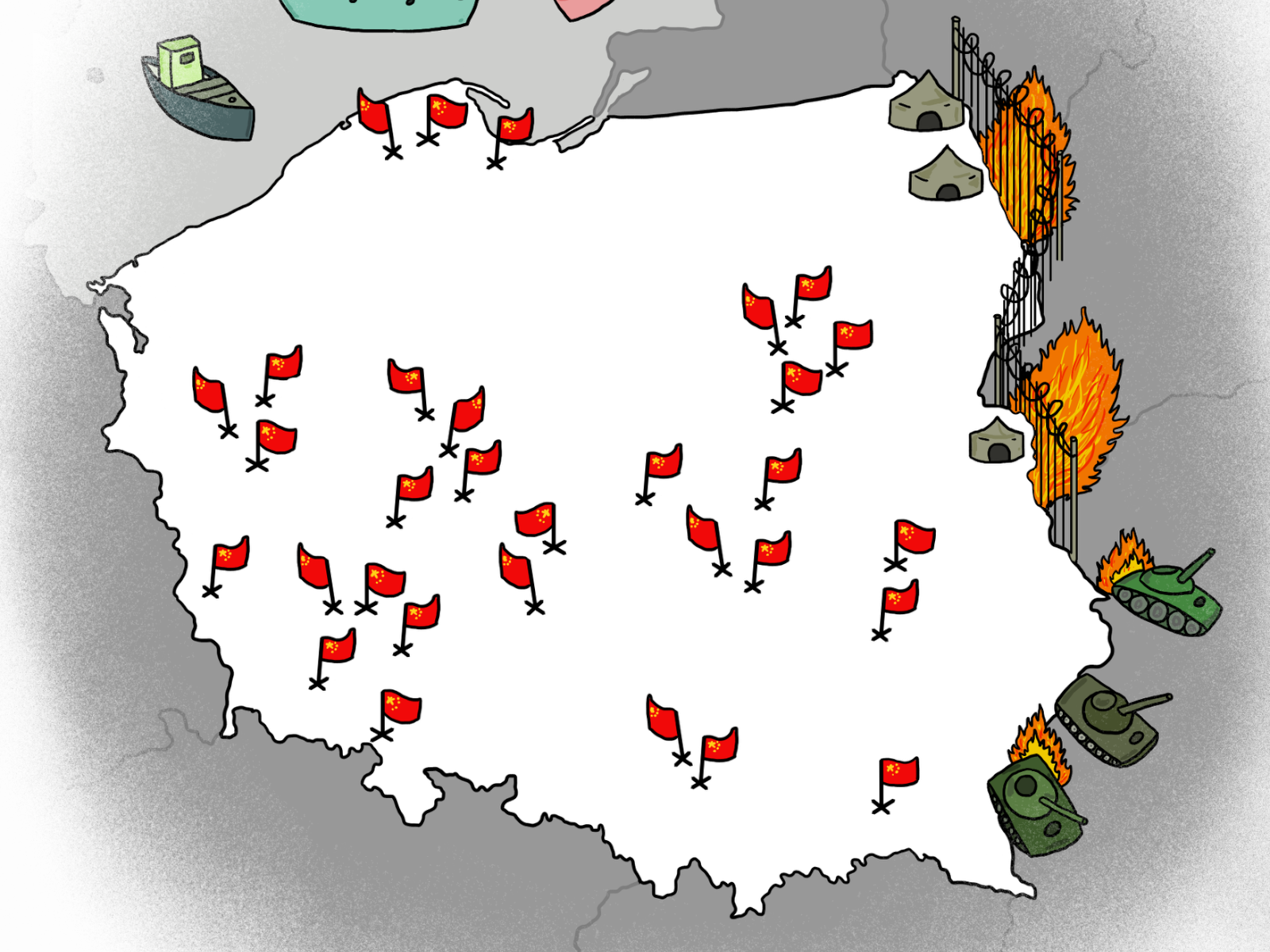Poland: Cognitive mismatch
In recent years, the activities of individuals and institutions representing the interests of China in Poland have been expanding in both their thematic scope and scale. In the local context, Chinese state-affiliated media and diplomats have been especially active in promoting anti-US narratives and spreading so-called “positive energy” related to Beijing’s perceived domestic and international successes. Especially since the onset of the COVID-19 pandemic, this kind of efforts became increasingly visible with Chinese entities advancing their activities in the Polish digital domain.
In the context of Russia’s invasion in Ukraine, the Chinese Embassy in Poland, China Radio International (CRI) Polish, as well as some local media appear as the most active actors in spreading Beijing’s position. The Chinese embassy published on its website three communiqués by Wang Yi, the Minister of Foreign Affairs, in early March. The first appeared just three days after the war had broken out and included China’s five-point position on the “Ukraine issue,” based on rhetorically supporting sovereignty and territorial integrity of all countries, advocating common security, exercising restraint, encouraging diplomatic efforts, and promoting the UN Security Council’s “constructive role” in de-escalation. The second communiqué reaffirmed Beijing’s so-called “four musts” approach towards Ukraine, reiterating its support for the principles of the UN Charter, respect for security concerns of all parties involved, willingness to resolve disputes by peaceful means, and hope for long-term stability in Europe. Another statement by Wang Yi focused on preventing a humanitarian crisis in Ukraine, yet again reiterating Beijing’s official rhetoric on the need to minimize the scale of human suffering and “depoliticizing” the war.
The messaging coming from the Chinese Embassy in Warsaw has been mild, seemingly trying to achieve an image of China as a benevolent actor working towards quick yet sustainable conflict resolution. This position, however, stands in striking contrast to the rhetoric found in Chinese state-affiliated media in Poland. CRI Polish’s official website and its Facebook profile have been very active when it comes to spreading the more aggressive type of Beijing’s messaging, which illustrates the convergence of certain strategic interests between China and Russia. The first commentary appeared on the outlet’s website on February 13, 2022. It accused the US and NATO of fueling the conflict between Russia and Ukraine for the sake of expanding its own sphere of influence in Central and Eastern Europe, thus “limiting Russia’s strategic security space.” In the days leading up to the invasion, a few similar articles were published, strengthening the same interpretation of events, and limiting Ukraine’s role to being a “victim” of Washington’s power politics. One day after the beginning of Russia’s invasion in Ukraine, CRI’s Polish commentary labelled it a “special military operation” to “demilitarize” the country, bluntly mirroring Kremlin’s rhetoric.
In early March, many among CRI’s pieces began pointing out the alleged US biolabs on the Ukrainian soil, which, according to the outlet, used to work on “many dangerous viruses,” clearly hinting at their potential role in spreading COVID-19. Moreover, one of them quoted Russian sources to promote a claim that the US side cooperated with Ukraine on a “project using bats as carriers of biological weapons.” Later, multiple pieces blamed the US not only for “provoking” the conflict, but also for using it to maximize the gains of its military-industrial complex and displaying “double standards” regarding refugees from Ukraine and other countries.
In April, one piece criticized the choice of several European countries to ban the letter “Z” from public display due to its pro-Russian connotations and called it an example of “political correctness” incompatible with the values of diversity and tolerance. CRI’s most peculiar criticism of the US included a pop-culture comparison with Harry Potter’s archenemy, Voldemort. In a piece from late April, Washington’s policies regarding Ukraine were compared to Voldemort’s “black magic,” as they both allegedly disturb order and illustrate “mad desire for absolute control.”
As far as CRI Facebook page is concerned, it has been promoting its commentaries, often accompanied by cartoons trying to ridicule the US in the context of the war in Ukraine. Interestingly, although CRI remains a niche outlet in Poland, its recent promotion of blunt pro-Russian content has resulted in some organic engagement on its Facebook profile, unlike the situation from before the war, when most of the engagement seemed to have been artificially generated.
Overall, China’s messaging regarding Russia’s aggression against Ukraine in the Polish information space has been visibly pro-Kremlin. Although the official diplomatic rhetoric has been relatively mild, Chinese state-affiliated media have been blaming the US and NATO for the conflict and have portrayed Ukraine as a passive actor with no agency of its own. This type of messaging has been accompanied by extreme clumsiness in the choice of specific wording, giving an impression of crude and ineffective rhetoric. Especially in Poland, where social sensitivity to pro-Kremlin propaganda is high, this kind of approach seems ineffective.


